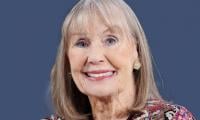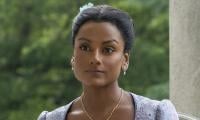Moscow: Russia warned on Wednesday of an "explosive" spread of the Delta coronavirus variant in the country that was made worse by a sluggish vaccination campaign leading to rapidly rising infections and deaths.
Citing increases in cases of coronavirus in all Russian regions, Deputy Prime Minister Tatiana Golikova called for stronger restrictive measures and speeding up of inoculations. "Last week the death rate linked to Covid increased by 21.3 percent compared to previous months," Golikova said, as the country records thousands of new cases and hundreds of deaths every day.
"The situation has become explosive," said Moscow Mayor Sergei Sobyanin, who has taken a leading role in Russia’s response to the pandemic. He said that more than 50,000 new infections had been recorded in the Russian capital, the epicentre of the country’s outbreak, over the past two weeks, calling it a pandemic high.
The highly infectious Delta variant, which first appeared in India, represents nearly 90 percent of new cases in Moscow, Sobyanin said. He said that the city has 20,000 beds available for coronavirus patients, more than half of which are occupied.
Russian authorities have stepped up measures to encourage a populace suspicious of coronavirus vaccines to get inoculated. Last week Sobyanin announced mandatory vaccinations for 60 percent of service sector workers by August 15.
The city has also introduced an anti-Covid pass for dining out starting June 28, allowing only residents who have been vaccinated, were sick in the past six months or can present a recent negative PCR test into restaurants. Although free jabs have been available to Russians since December, just 20.6 million out of a population of about 146 million have received at least one dose of a vaccine, according to the Gogov website which tallies Covid figures from the regions and the media.
Russia is among the countries hardest hit by the pandemic, with the sixth-highest number of cases in the world, according to an AFP tally based on official figures. Meanwhile, the European Commission approved a French plan to spend part of the bloc’s coronavirus rescue fund, which will see the release of 40 billion euros ($48 billion) over the next five years, its chief said Wednesday.
"The French plan will help France to maintain its autonomy and leadership by investing in innovation and new technologies, while keeping the need for cohesion, inclusion and justice at its heart," commission chief Ursula von der Leyen said in Paris.
"I am happy to announce our full support," von der Leyen told French President Emmanuel Macron as she handed over a large yellow and purple folder containing the commission’s assessment at the Elysee palace.
EU member states have had to submit plans for spending their share of the landmark 750-billion-euro ($910-billion) recovery plan, known as Next Generation EU, which was drawn up nearly a year ago. Von der Leyen has begun a tour of European capitals to announce the commission’s decisions, with Spain and Portugal the first to receive the green light last week.
Macron used the opportunity to stress how the EU had taken "steps that were considered unthinkable even a year ago" by authorising the commission to raise money by issuing bonds on behalf of the entire 27-member bloc.
In a related development, Queen Elizabeth II on Wednesday hosted Prime Minister Boris Johnson at Buckingham Palace in London for the pair’s first weekly in-person audience since the start of the coronavirus pandemic.
The Queen, 95, has received prime ministers for weekly audiences throughout her long reign and has kept in touch with Johnson by phone since March last year when the first lockdown measures were imposed.
The monarch also spoke with the prime minister in-person when she met with world leaders at the UK-hosted G7 summit in Cornwall in southwest England earlier this month.
But the return of the face-to-face meeting, during which the Queen wore a lilac dress, was seen as a return to normality at her official residence, in central London. At the start of the pandemic, the Queen retreated to Windsor Castle west of London with her 99-year-old husband Prince Philip. The royal household dubbed the social distancing arrangement designed to protect the elderly royals "HMS Bubble".
In body camera video released on Thursday by the Canton Police Department, officers are seen apprehending the man
Voter turnout around the halfway mark was 39%, an Election Commission spokesperson said
The U.N. has said nearly 25 million people, half of Sudan’s population, need aid and some 8 million have fled their...
“Kingdom of the Planet of the Apes director, Wes Ball. — HollywoodLONDON: “Kingdom of the Planet of the...
The influx of weapons could improve Kyiv’s chances of averting a major Russian breakthrough in the east
The Perlmutters gave at least $21 million to America First Action Inc in 2020







